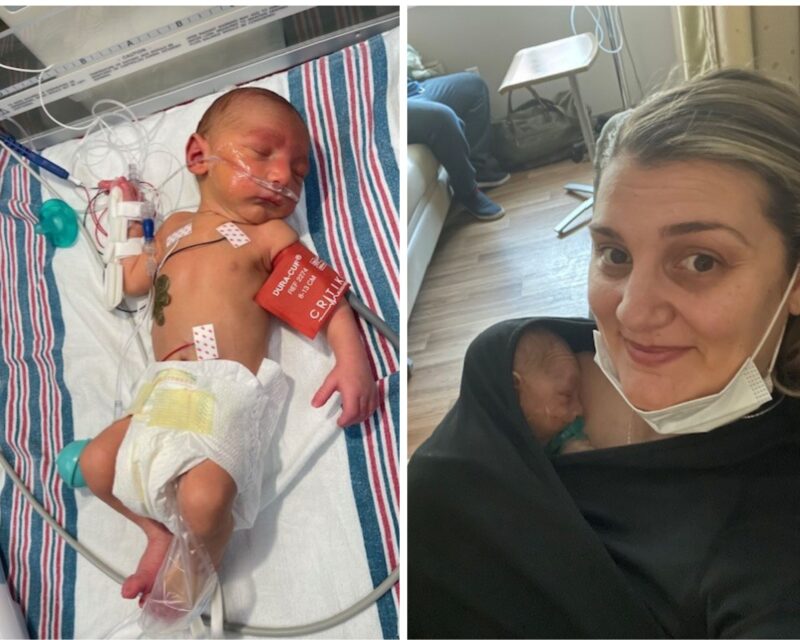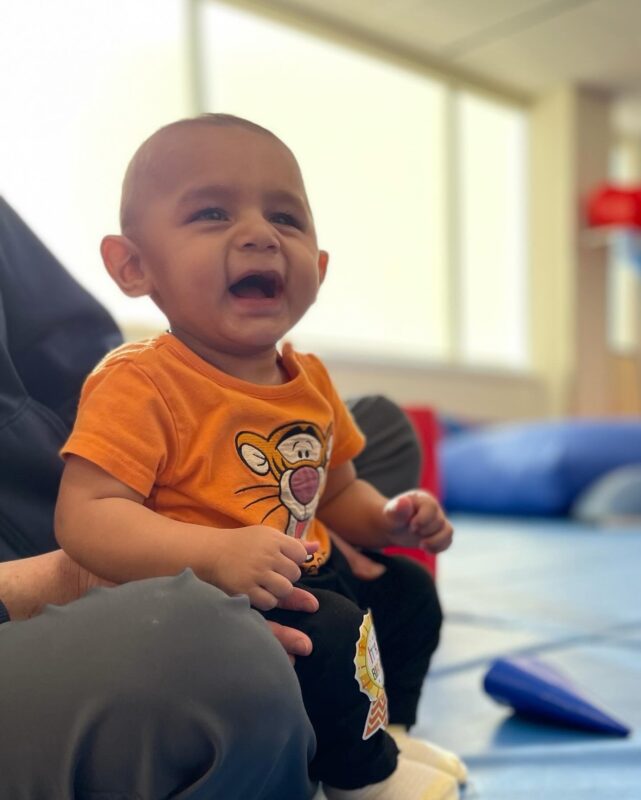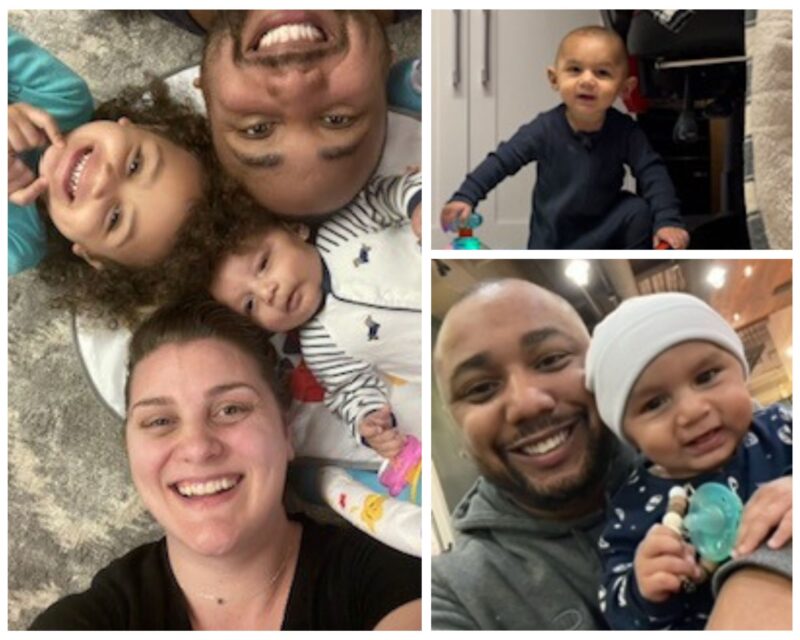
Noah Davis spent 93 days in the NICU, including his very first Christmas. When he was 2 months old, he was diagnosed with DYRK1A syndrome, a rare genetic condition that affects fewer than 1,000 people and can lead to delayed development, learning disabilities, hypertonia, seizures and difficulty with speech and feeding. He’s pictured here with his mom Katie.
When Katie and Marques Davis decided to move back to Ohio from California, it was so they could be near family to help them with their 4-year-old daughter, Scarlett, and their baby on the way while they both returned to school to pursue nursing. Little did they know their journey would soon take unexpected twists and turns with the arrival of their son, Noah.
Katie’s 20 week scan showed Noah’s head was smaller than it should be for his gestational age.
“We didn’t know what was going on, but we knew he wasn’t growing the way he should be,” Katie said. “At 38 weeks, they decided to induce me so he could continue growing outside the womb.”
Although he was considered full-term, Noah weighed just 5 lbs., 9 oz. at birth. After being sent home, Noah immediately started having feeding issues.
“He was taking more than an hour to nurse and was constantly projectile vomiting and losing weight,” said Katie,

Noah now drinks from a bottle, eats pureed foods, crawls and is starting to stand. He participates in physical, occupational and speech therapy and is learning sign language.
At 7 days old, Noah’s pediatrician discovered a tongue tie.
“They clipped it, but we still didn’t see any feeding improvement or weight gain,” said Katie.
That was when Dr. Sarah Ayers, a pediatrician at Akron Children’s Pediatrics Portage, ordered an upper GI scan and recommended Katie see lactation consultant Liz Maseth.
“I met with Liz, and she immediately looked at Noah and felt like something was wrong,” said Katie.
Liz called Dr. Ayers to relay her concerns about his poor feeding and low body temperature and they agreed he should be seen in the ER. Once there, the decision was made to admit Noah to the NICU where he remained for the next 93 days.
“I was so scared, but I knew they would take good care of him and that he was in the safest place he could be,” said Katie.
After a lumbar puncture, CT, MRI and multiple other procedures and tests, doctors still couldn’t figure out what was going on with Noah. Dr. Matthew Wyneski, Noah’s gastroenterologist, ordered more scans and discovered food was passing through his sphincter but it was coming right back up.
Since a gut motility test showed everything was working correctly, Noah was referred to genetics so they could do a deeper dive into what was going on.

Katie and Marques Davis, who both work for Akron Children’s, pictured with their children Scarlett and Noah.
On Valentine’s Day 2023, when Noah was just 2 months old, the Davis’s finally got a diagnosis. Noah had DYRK1A syndrome, a rare genetic condition that affects fewer than 1,000 people. Individuals with this syndrome often have a smaller head size (microcephaly), delayed development, learning disabilities, hypertonia, seizures and difficulty with speech and feeding.
At 3 months of age, Noah had a Nissen procedure to reinforce his lower esophageal sphincter to help prevent acid reflux and aspirations from backing up into his esophagus. He also had a feeding tube placed for medication administration and nutrition.
Additionally, at 10 months old, he was diagnosed with cerebral palsy, further adding to his medical complexity. Now a little over a year old, Noah is doing well, despite some sleep issues that are common with his condition.
“He drinks from a bottle, eats pureed foods, crawls and is starting to stand,” said Katie. “He participates in physical, occupational and speech therapy at Portage Health Center where he is learning sign language.”
Katie and Marques are both completing their pre-requisites for nursing at Stark State College, while they work for Akron Children’s – she as a rehab technician and he as a patient service representative. Both hope to apply for the hospital’s Career Launch program, which would help cover tuition, fees, childcare and transportation costs while the couple is in school.
Katie is grateful to be back in Ohio near family who help watch Noah during the day and to Akron Children’s for all the wonderful care Noah has received.
“We are thankful to everyone who has been a part of Noah’s journey,” said Katie. “We have a long road ahead, but Noah is a fighter. He’s got this.”










